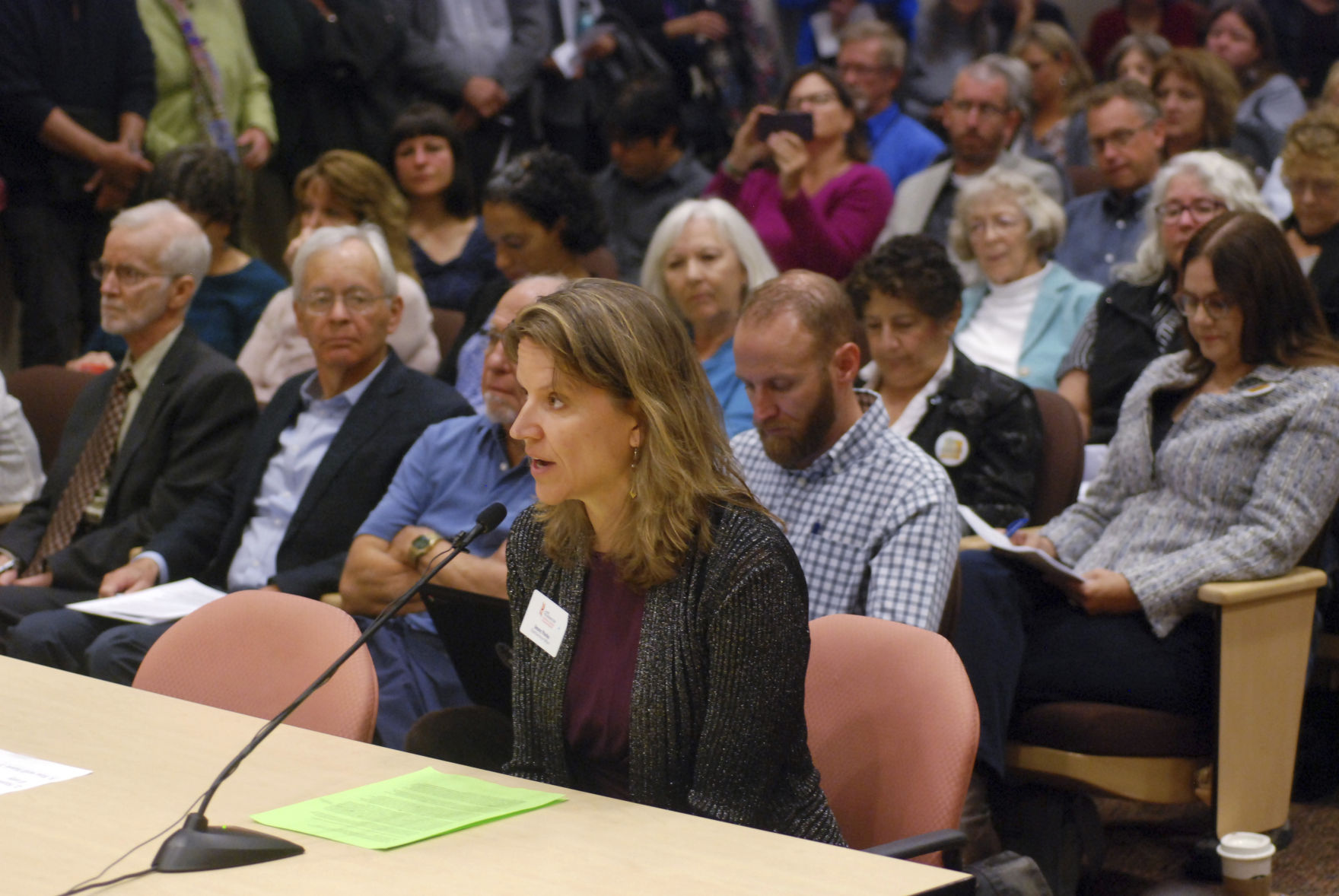SANTA FE, N.M. (AP) — Public education officials in New Mexico have retreated from proposed science standards that would have deleted or omitted references to evolution, human contributions to global warming and Earth’s age. Scores of scientists and engineers from
SANTA FE, N.M. (AP) — Public education officials in New Mexico have retreated from proposed science standards that would have deleted or omitted references to evolution, human contributions to global warming and Earth’s age.
Scores of scientists and engineers from Los Alamos National Laboratory — the birthplace of the atomic bomb that is located in energy-dominant New Mexico — joined a broad backlash against the standards promoted by Republican Gov. Susana Martinez’s administration.
Responding to public outrage, education officials went back this week to a template followed by at least 18 states and designed to make science education more engaging and effective.
———
WHAT PROMPTED THE FIGHT?
In its first overhaul of science teaching guidelines since 2003, New Mexico relied on Next Generation Science Standards designed by a consortium of states and the National Academy of Sciences.
Public Education Secretary Christopher Ruszkowski proposed a New Mexico-specific version that would ensure “flexibility and local control” for science materials, curriculum and classroom lessons.
That version dropped references to evolution and Earth being 4.6 billion years old. The study of global warming was couched in vague terms of temperature “fluctuations.” It added guidelines for studying the state’s oil and natural gas industry, mining and ski resort snowmaking.
Science teachers associations recognized concessions to those who doubt human-caused climate change and scientific evolutionary theory. More than 60 leading scientists at Los Alamos took out a full-page newspaper ad, pressuring state officials to backtrack.
School boards and business associations described a setback in efforts to prepare students for college and careers.
Hundreds flocked to a public hearing to denounce the plan as teachers unions, faith leaders and Democratic officials protested on the education department’s lawn. Indoors and out, no one spoke in support of the science changes.
———
WHY ARE SCIENCE STANDARDS DIVISIVE?
The proposal would have left less-experienced teachers at the mercy of personal opinions about climate change from parents and onlookers, said Glenn Branch, deputy director of the nonprofit National Center for Science Education that defends teaching evolution and other science-based classroom subjects.
He said science standards have become a battleground for climate change issues in several states, citing West Virginia as the most prominent example of evasive language in school teaching guidelines.
Plus, in the energy-reliant state of New Mexico, public school districts depend on billions of annual dollars in tax revenue, fees and royalties from the oil and natural gas sector that are channeled through state government.
School administrators in oil-heavy southeastern New Mexico tread lightly on what causes climate change.
“We literally have gas wells right next to our playgrounds,” said T.J. Parks, superintendent of Hobbs Municipal Schools. “I’m certainly not going to throw any stones at the oil industry. That is who we are.”
At the same time, Parks said advanced placement classes and testing dominate teaching decisions about science in his district. In Hobbs, there was no controversy, he said.
Chris Norris, who has two elementary school children in the Santa Fe public schools, said the proposal felt like an assault on scientific theory and the state’s enlightened reputation.
“It bothers me intensely,” he said. “It doesn’t represent us.”
Ruszkowski, the head of public education, said his office developed the tailored science standards during informal conversations with students, teachers and parents. He has declined to name anyone in those discussions.
———
WHAT WAS THE SOLUTION?
Ruszkowski said Wednesday night that the science standards would not include the contentious changes. The final version trimmed passages about local accomplishments in science and industry from 35 to a half-dozen.
People on both sides claimed a measure of victory, including Ruszkowski for following through on promises to listen to the public.
State Sen. Mimi Stewart of Albuquerque, chairwoman of an influential education committee, expressed pride in the outpouring of public concern — from scientists in particular — noting that the Democratic-controlled Legislature has little authority to intervene in education department decisions on academic standards.




